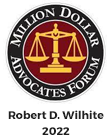
When we receive a new automobile accident case, we always ask our clients not only for the insurance information for the at-fault driver but also for their own insurance information. I am frequently asked by clients why we need their insurance information if they were not at fault for causing the collision. There are several important reasons we request that information.
When you applied for and were granted insurance with your automobile insurance carrier, you signed a binding contract with the insurance company and agreed to abide by the terms of the policy. Automobile insurance contracts universally include a clause regarding timely loss reporting, meaning that you have a duty as their insured to report all losses to them, whether you intend to present a claim or not. Timely loss reporting allows your insurer the opportunity to investigate the potential claim. The more time that passes, the harder it is to investigate a claim. Witnesses move, vehicles may be totaled or sold, documents or photos may be lost. In short, time gives valuable evidence the opportunity to disappear, making it that much more difficult to properly investigate a claim. Accordingly, time is of the essence in investigating the claim, whether it be our office or the automobile insurance carrier investigating. If you (or our office, as your representative) did not timely notify your insurance carrier of the loss, but you needed benefits from your insurance company later on, they would potentially have the right to deny your claim on the basis of untimely loss reporting. They can also cancel your insurance contract and refuse to insure you in the future. Those stipulations are usually spelled out in the insuring agreement portion of your insurance contract. We certainly do not want any of that to happen.
Additionally, your policy provides for certain benefits in the event of a covered loss, such as a not-at-fault collision. Specifically, you may have med pay benefits under your policy, which can be used to pay your bills in whatever amount you purchased through your automobile insurance company (most people choose a $5,000 benefit). Med pay is extremely helpful in that it can pay a portion, if not all of your bills so you don’t need to worry about them. Also, you may have uninsured or underinsured motorist coverage, which provides benefits to you when the person who hits you either doesn’t have insurance or doesn’t have enough insurance to cover all of your damages. While it seems unfair to have to use your own insurance to cover services needed due to someone else’s fault, if you have these coverages, you are paying for them for the precise scenario when someone else injures you but doesn’t have sufficient coverage themselves to make you whole. It just makes sense to take advantage of the available coverages.
Many clients are concerned that making a claim on their own policy will make their insurance rates increase. Insurance policy premiums are controlled by risk; the greater the risk, the higher the premiums. Presenting a claim for an isolated, not-at-fault collision for benefits under your own policy that you pay for, and to which you are entitled, cannot be used to increase your premiums. That does not mean that your premiums cannot change; premiums may increase due to certain risk factors that may have increased in your area. If you do see an increase in your premiums on your next renewal, you should ask your insurance agent or carrier why they increased your rates, what factors were considered, and if there is anything you can do to change those factors. You can also ask for that information in writing, to include a break-down of your specific policy renewal changes and what items increased compared to the previous term. There have been a few occasions when a client’s own insurance company misunderstands the situation and believes that the client is at-fault for the accident when he or she is not, and it can be something as simple as providing the insurance company with the police accident report to clear up the misunderstanding.
Further, if you decide to not purchase med pay or uninsured/underinsured motorist benefits, you may still have the opportunity to be provided with those benefits if the insurance company cannot produce the statutorily mandated waiver that you must sign if you decline to purchase those coverages. So while you may not think you have those coverages, and maybe, in fact, you didn’t purchase them, the insurance company may be required to provide them to you if the insurance company did not do its job properly. However, if no claim is opened, that opportunity will be missed.
In sum, notifying your insurance carrier of any accident, whether you are at fault or not, is a must. And if you are paying for med pay or uninsured/underinsured motorist benefits, you may as well take advantage of them, or you are just gratuitously giving the insurance company your hard-earned money for no reason.























